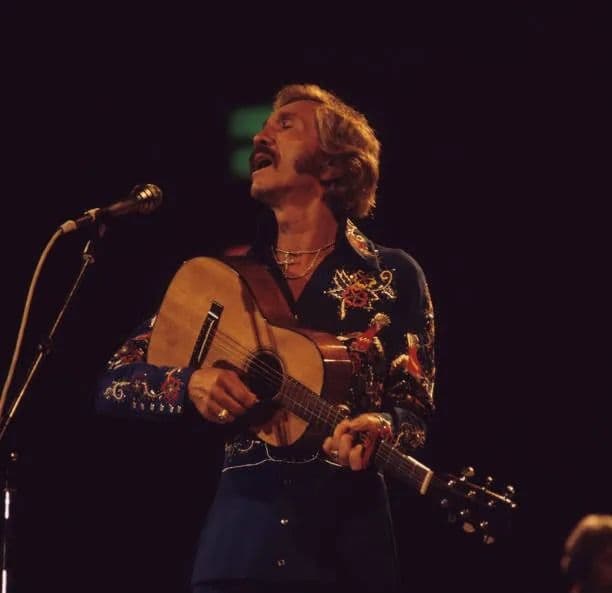
This is a testament to spiritual redemption through the sacrifice of Christ.
For those of us who grew up with the smooth, resonant baritone of Marty Robbins as the soundtrack to our lives—a voice equally at home on the windswept plains of “El Paso” as it was in the intimate confines of a country church—the song “There’s Power In The Blood” holds a special, deeply-felt place. It is a stirring reminder that long before his chart-topping western sagas, Marty Robbins was an artist rooted in the fundamental American experience, which for so many included the bedrock of faith.
This particular rendition of the classic hymn was released by Marty Robbins on September 13, 1963, as part of his profoundly spiritual album, What God Has Done. Unlike many of his signature country and pop crossover hits, the song “There’s Power In The Blood” was not a contender on the secular charts. It was a piece designed not for the Billboard Hot 100, but for the soul’s quiet contemplation. It belongs to the tradition of Gospel music that was an essential, if less-publicized, facet of his career, demonstrating his versatility and genuine reverence. The album itself, What God Has Done, was a collection of deeply-felt religious songs, and this track, produced by the legendary Don Law and Frank Jones, was a cornerstone of that project.
The narrative behind the song is not one of Marty Robbins‘ own creation, but rather that of a cherished hymn. The original was penned by Lewis E. Jones in 1899. Jones was an evangelist and music director who wrote the piece while attending a camp meeting in Mountain Lake Park, Maryland. It was first published later that year. The hymn’s immediate and enduring popularity lies in its profound, direct theological meaning, which Marty Robbins captured with earnest simplicity. The message, of course, centers entirely on the Christian doctrine of salvation and redemption achieved through the atoning sacrifice of Jesus Christ, often metaphorically referred to as “the blood of the Lamb.”
Listen to Robbins’ version, and you’ll immediately note the stripped-down, sincere delivery. It’s a performance devoid of the melodrama of his Western ballads, focusing instead on the powerful, declarative nature of the lyrics. When he sings, “Would you be free from your burden of sin? / There’s power in the blood, power in the blood,” his voice is less the romantic gunfighter and more the humble, dedicated choir member, inviting us back to a simpler time. For our generation, that familiar, trusted voice wrapping around words of eternal hope is like a warm memory flooding back—a Sunday morning from decades past, the smell of freshly brewed coffee and starched collars, the comforting familiarity of a truth held sacred.
It is a song about cleansing, freedom, and triumph. It asks the listener a series of rhetorical questions—”Would you be free from your passion and pride?,” “Would you be whiter, much whiter than snow?”—each answered with the resounding, unwavering affirmation: “There’s pow’r, pow’r, wonder working pow’r / In the blood of the Lamb.” It’s a hymn of assurance, a melody that ties us back not only to our childhoods but to a shared, spiritual heritage. Marty Robbins’ decision to record such material, even as his star shone brightest in the secular world, speaks volumes about his character and the deep vein of faith that ran through his own life and the lives of his devoted audience. It is not just a song; it is a musical benediction, a moment of calm certainty provided by a legendary voice.